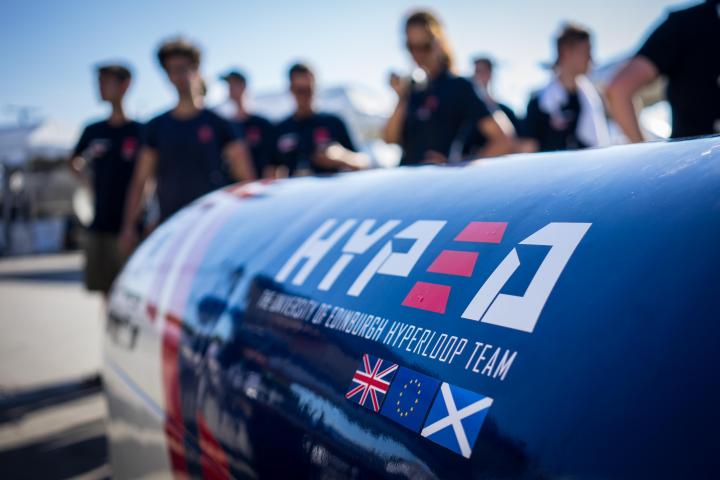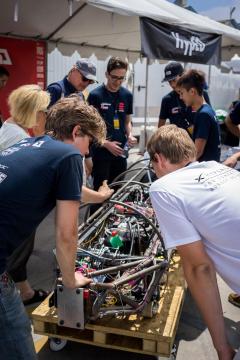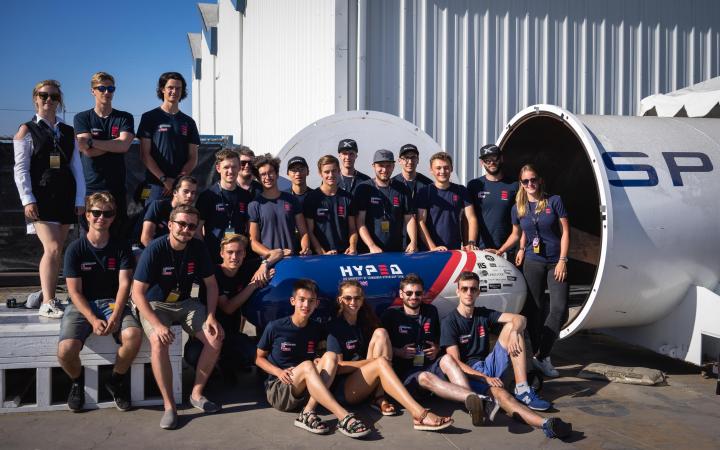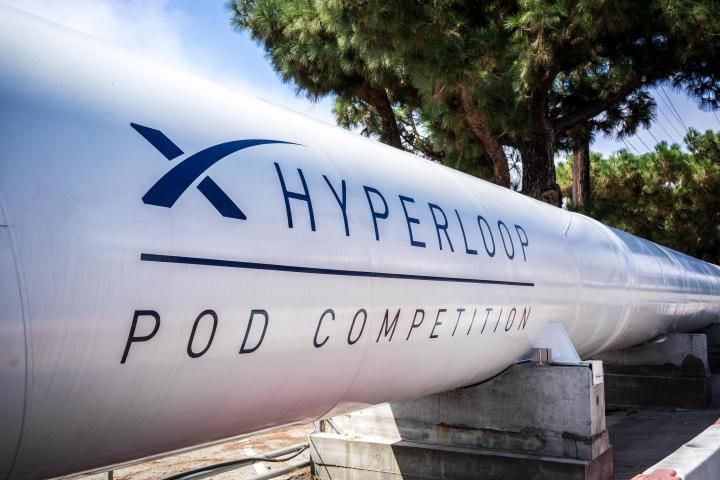HypED students keep up their momentum
An Edinburgh student team’s long-running involvement in one of world’s most prestigious engineering contests culminated in a strong showing at a competition weekend in the US last month.
But before the dust had even settled on HypED’s latest contribution to the development of a revolutionary new form of transportation, the team was already looking to the future.

Following years of work, and after making it through numerous earlier rounds, HypED was invited to California to take part in the final of a contest to design the Hyperloop. First proposed by billionaire inventor Elon Musk, the futuristic system is intended to transport passengers over land in pods travelling at around 750mph in a near-vacuum tube.
The SpaceX Hyperloop Pod Competition II took place from 25-27 August. HypED was the only team from the UK – and one of just four European groups – to reach the final. They joined 24 other teams at the competition weekend held at SpaceX’s headquarters in Hawthorne, California.

Over the course of several months, the team had built a prototype Hyperloop travel pod in their workshop at King’s Buildings. It was shipped to the US in early August, and upon arrival HypED’s technical team spent almost a week reassembling it.
Design praised
The competition involved a range of tests including extensive structural and functional checks, presentation to SpaceX judges and, for just a handful of teams, the chance to test their pod in the company’s mile-long vacuum testing tube.
HypED received recognition during full-scale dummy testing, where the team’s design was praised for being entirely electronically powered and magnetically levitated, thus avoiding the use of air tanks.
The team’s pod also passed a rigorous structural test to ensure that the vehicle’s hydraulics were safe and that its suspension was capable of withstanding the extreme forces expected during travel. The test also showed that the pod’s chassis was strong enough to withstand similar forces, the powerful magnets used for levitation were safe and its brakes would work during an emergency.
The team passed a series of preliminary checks required before pods could be tested in the vacuum tube. HypED’s pod was approved for testing at up to 140 km/hour, and it passed a test to ensure it could successfully pass along the tube’s guide rail. It also passed a safety check to ensure pods would cope with the low pressure inside the tube and not present a fire risk.
Of the 25 teams that made it to the final, only three were selected to test their prototypes in the vacuum tube. Unfortunately, as the software safety systems on HypED’s pod were not fully functional, the team was not given the chance to take part in this final testing stage. The winners of the competition were WARR Hyperloop from the Technical University of Munich, Germany, who managed to reach a top speed of 201 mph in the vacuum tube.
Future challenges
The team’s achievement in reaching the final – and building such a mechanically and electronically sophisticated machine – marks enormous progress on last year, when HypED only submitted designs to the competition.
With most of its current members set to continue their involvement, HypED’s technical team is already planning for the 2018 contest at which competitors have been challenged to incorporate an on-board propulsion system in their pod prototypes.

Commercial successes
Elsewhere, HypED’s commercial team has been announced as one of the winners of a related business competition. The Hyperloop One Global Challenge tasked teams with developing detailed plans for the most feasible routes to implement one of the world’s first Hyperloop systems. More than 2,600 teams registered for the competition, and HypED's proposed route from Edinburgh to London was chosen as one of just 10 winners by the contest's expert judges.
The team is also developing outreach activities centered on the inspirational potential of Hyperloop, in an effort to encourage secondary school pupils to consider careers in science, technology, engineering and mathematics (STEM) subjects.
After a truly remarkable year, HypED remain on track for further success in 2018.


